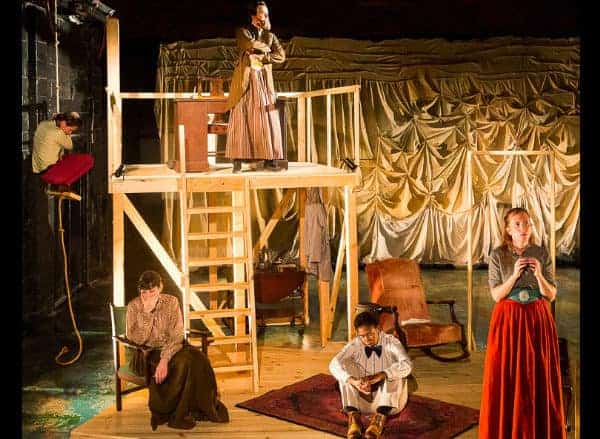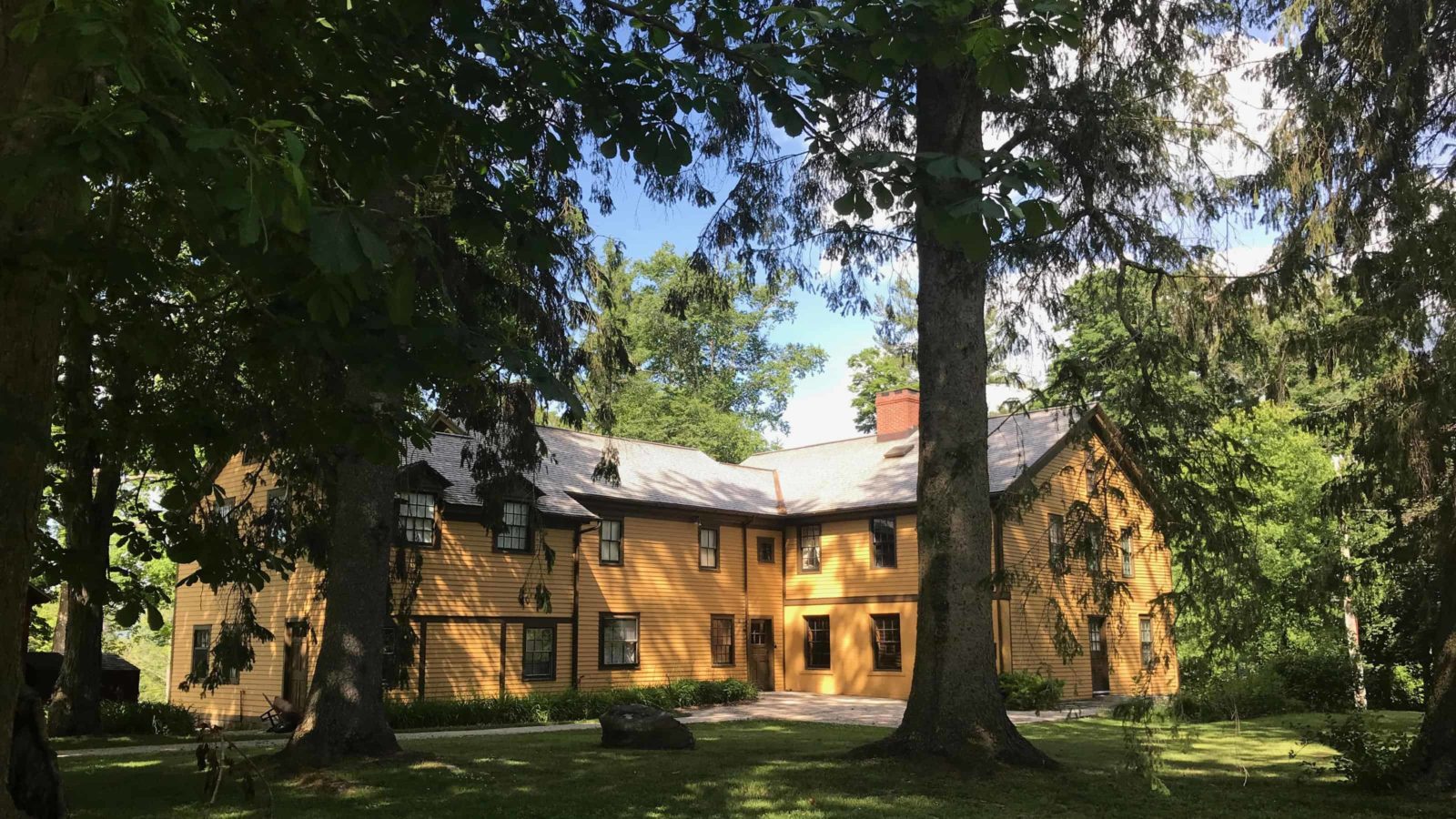The maniacal sea captain, the mad-cap whaling ship, the crewmen from New England and the Ocean Islands sleeping peacefully in a lantern-lit tavern in New Bedford … Moby-Dick was a radical and visceral challenge when it came out, more than 150 years ago. Can the story hold as radical an edge today? Maybe, if women tell it. Elizabeth Doss, Herman Melville’s great-great-great-grand-daughter, has decided to meet her family — and bring them home.
On Tuesday, Oct. 3 at 7 p.m., she will present a staged reading of her new play, “Poor Herman,” at Arrowhead in Pittsfield, the historic house where Melville wrote Moby-Dick.
The actors are a diverse cast of five women, and each will play Melville at some point in the play, as well as his wife, Lizzie, and his sister, his family and Nathaniel Hawthorne, his friend and idol. Doss brings them together, she said, to get to know her ancestors and who they are to her.
The play opens in New York as Melville begins writing Moby-Dick, a book hardly anyone read in his lifetime, and moves with him to Pittsfield afterward as he writes his last book, Pierre, a book hardly anyone knows now. Doss called Melville’s last novel the single worst reviewed book in American literature — a strange, metaphysical melodrama, experimental, over the top. She wondered what compelled him to write it.

Elizabeth Doss' Poor Herman shows Melville's life through the eyes of a diverse cast of five women — who all play him.
“So many great authors felt like failures in their lifetimes,” agreed director Dustin Wills, an old chum of hers from Texas. “Chekhov, Jean Genet, Federico Garcia Lorca … It’s a thread I find honest and unique. How do we manage our failure and suffering and still have the will to create?”
Melville’s family crowd into his Berkshire farmhouse, all downstairs and on top of each other while he tries to write above, and all protesting at top volume.
Doss recognizes that stifled energy. She grew up in Texas, in a house with five brothers and sisters, on 30 acres next to a 7,000-acre ranch. Her parents thought they would be homesteaders, she said, and they raised a large family in an isolated place with nowhere to go.
Among her family five generations back, Doss becomes a character in the play. She learned this kind of narrative movement from some of her favorite writers, including Thornton Wilder, she said. She was struck with the ways Melville was breaking with form in his writing; she wants to reflect the kind of writer he was, and the kind of man.
Many plays about him don’t do him justice, she said. He was a radical thinker.
In her own form, actors moved fluidly from one role to another and one pitch to another. The story flexes voice and feel, in three parts, like a triptych: drama in the beginning, almost screwball in the middle and somberly thoughtful at the end.
Wills enjoys its play and range.
“I’m a huge fan of telling stories that don’t take a straight Aristotelian arc through,” he said. “It’s as though the story turns 360 degrees.”
Doss has seen this style, a jazz aesthetic, in experimental theater, but not usually with 19th-century characters. She chose women to play all the roles partly in honor of her family — she is related to Melville almost entirely related through a line of women. She also wants to give women a chance to play with roles they do not often have open to them, and to ask people to reconsider what they find familiar, or to let something familiar bring them close to something new.
“Seeing someone who looks like you or sounds like you can give you an entry into a character shut off to you before before,” she said.
She thinks of the work as historical fiction, not a straight history. It is alive with historical research, but a touch of fiction can bring her close to characters who may not have written as much or as deeply as Melville has.
His wife, Lizzie, was in her heart of hearts.
“Lizzie had the weight of the world on her shoulders,” she said, “his family, what might have been his mental illness and his financial failure. She was protecting him from his family and the press and his critics.
“We may ask now, why didn’t she leave him? Her family was saying he’s insane. You should have him committed. You can feel so many things for one person. Her choices are admirable and suspect at the same time.”
Coming close to Melville’s intimate life, she also speculates about Melville’s one-time close friend, Nathaniel Hawthorne.
Many people have said Hawthorne coaxed Melville into writing the madness that became Moby-Dick, Doss said. He urged Melville to go farther in his experimenting. But Hawthorne was popular. He was the writer everyone wanted to be. His American Gothic romances were successful and widely sold.
“Northern Lights was being passed around in Melville’s household,” she said. “Melville abhorred the style, but he thought I can do that and make a bunch of money. But his characters are winking and nudging the whole time, sharing his distress at having to write something that doesn’t speak to him.”
She wanted explore the ambiguity in their relationship, she said. She writes scenes between them with an attraction and tension that builds, sometimes in shameless innuendo and sometimes subtly. She invites questions and interpretations, she said, rather than absolute answers. As an artist and a writer, she knows the admiration and attraction that lives in deep connections. And she knows it can be one-sided.
She admires Melville as a compelling writer — “His language is experimental. You feel it in your mouth.”
She also finds him a difficult man, in his passions and rages.
“You can allow someone to be flawed and not try to skirt over the flaws, but see the beauty and humanity in him at the same time,” she said. “So often straight narratives want someone to be good or bad, likable or not. That’s not the world I understand.”
Up close …
What: Elizabeth Doss’ play Poor Herman,
Where: Arrowhead, 780 Holmes Road, Pittsfield
When: Tuesday, Oct. 3 at 7 p.m.
Admission: $20
Information: 413-442-1793, mobydick.org
This story first ran in the Berkshire Eagle’s Landscapes section; my thanks to features editor Lindsey Hollenbaugh. In the photo at the top, Elizabeth Doss’ Poor Herman shows Melville’s life through the eyes of a diverse cast of five women — who all play him. (Photo courtesy of Elizabeth Doss)

